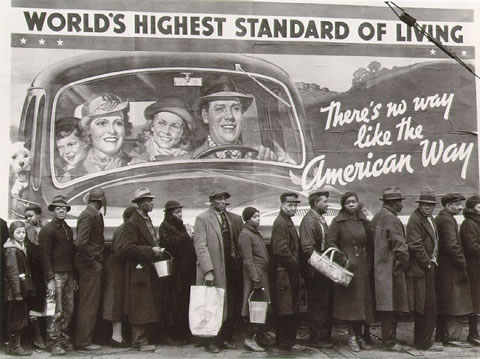In a WSJ essay, Peter Thiel expands on what he said in his recent AMA, that “capitalism and competition are opposites.” Thiel, who approves of monopolies, doesn’t believe they only benefit individual businesses but broader society as well, as they have the capital to care about workers and ethics and the environment. I disagree strongly, but I’ll acknowledge that we’ve all certainly benefited from Bell Labs, the moonshot division of a government-backed monopoly. An excerpt:
To an economist, every monopoly looks the same, whether it deviously eliminates rivals, secures a license from the state or innovates its way to the top. I’m not interested in illegal bullies or government favorites: By “monopoly,” I mean the kind of company that is so good at what it does that no other firm can offer a close substitute. Google is a good example of a company that went from 0 to 1: It hasn’t competed in search since the early 2000s, when it definitively distanced itself from Microsoft and Yahoo!
Americans mythologize competition and credit it with saving us from socialist bread lines. Actually, capitalism and competition are opposites. Capitalism is premised on the accumulation of capital, but under perfect competition, all profits get competed away. The lesson for entrepreneurs is clear: If you want to create and capture lasting value, don’t build an undifferentiated commodity business.
How much of the world is actually monopolistic? How much is truly competitive? It is hard to say because our common conversation about these matters is so confused. To the outside observer, all businesses can seem reasonably alike, so it is easy to perceive only small differences between them. But the reality is much more binary than that. There is an enormous difference between perfect competition and monopoly, and most businesses are much closer to one extreme than we commonly realize.
The confusion comes from a universal bias for describing market conditions in self-serving ways: Both monopolists and competitors are incentivized to bend the truth.•
Tags: Peter Thiel

